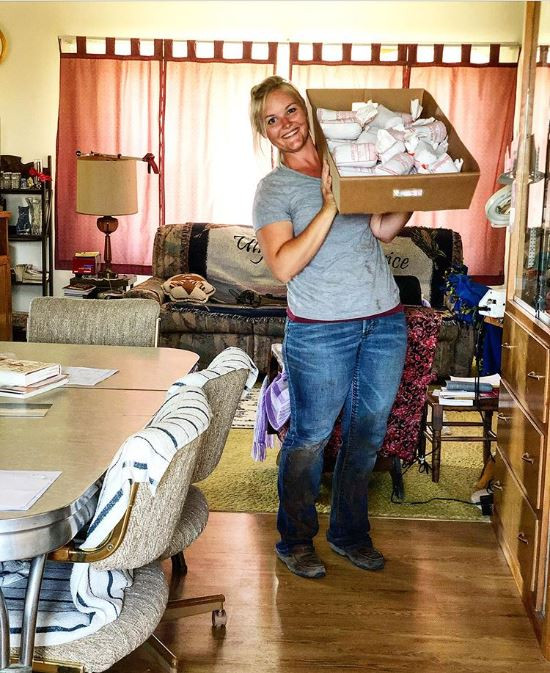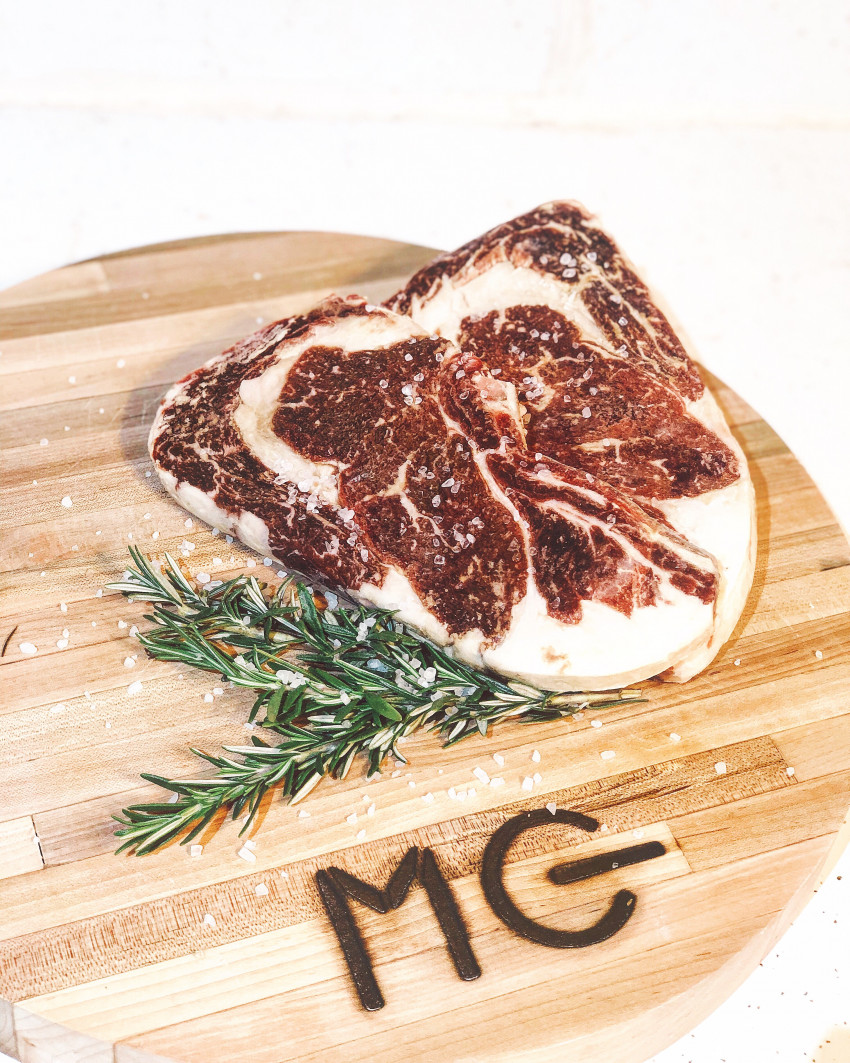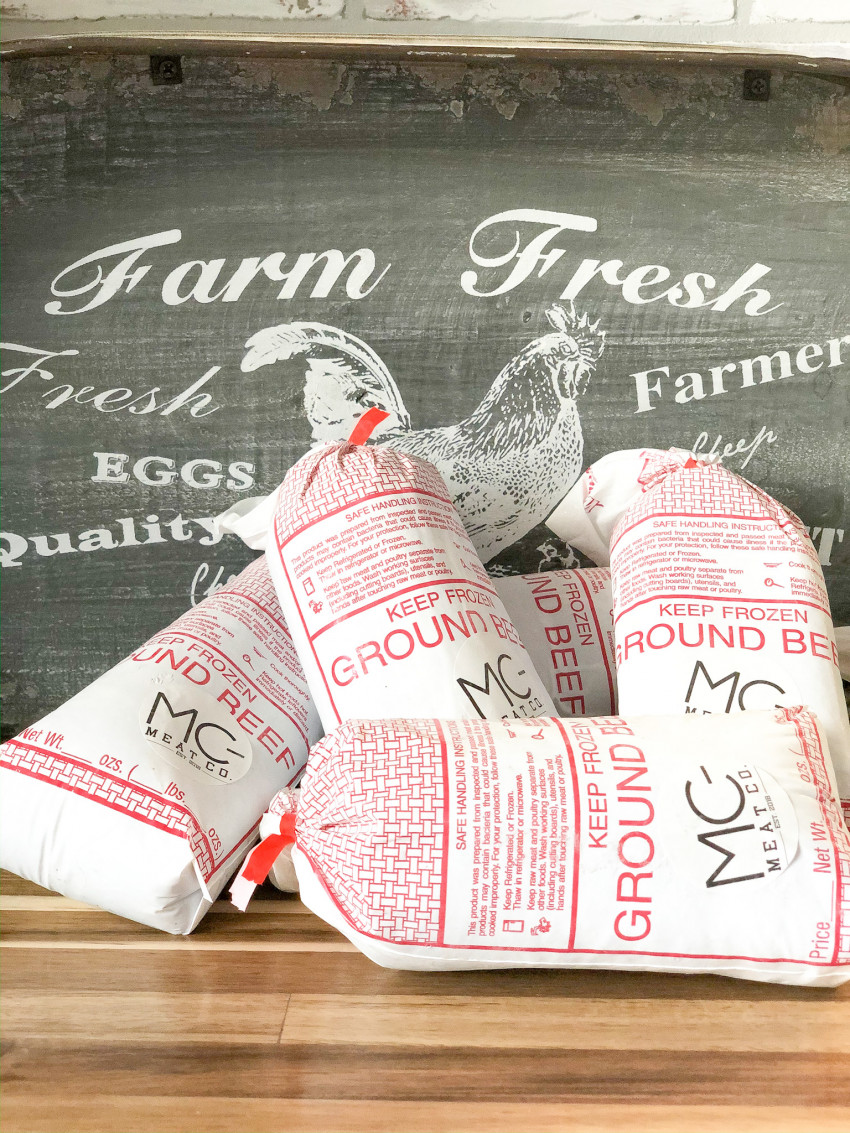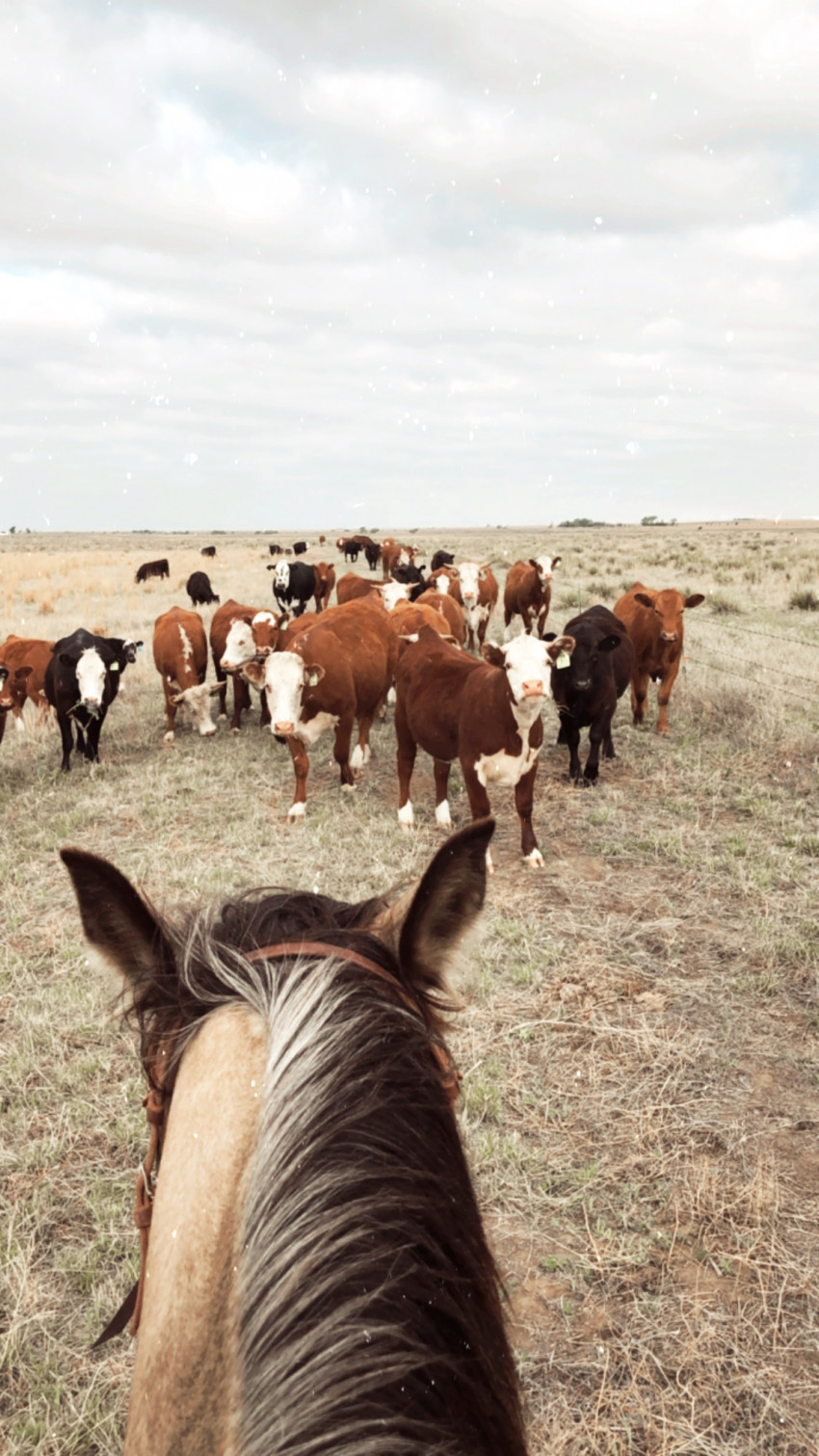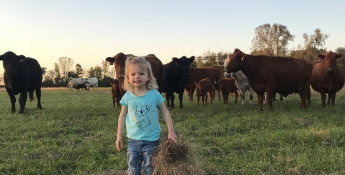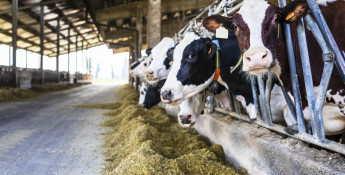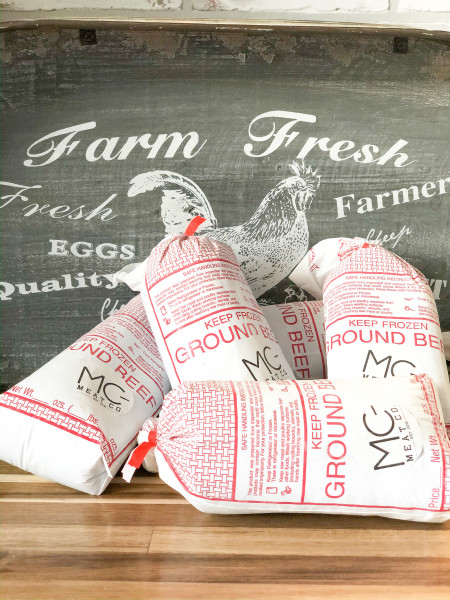By Sheridan Wimmer on May 26, 2020
Western Kansas rancher provides beef to local grocery store
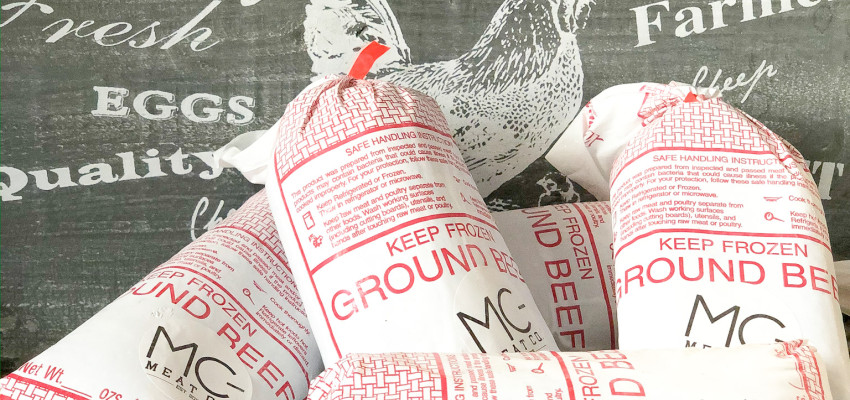
Lettie McKinney of Johnson City believes in failing forward. When she initially tried to sell beef cuts to her local grocery store, they told her they couldn’t because they weren’t able to accommodate buying the entire cow. Two years later, the same grocery store approached McKinney to provide beef when they were seeing a shortage in supply.
“I assumed the grocery store’s answer two years ago would be no,” McKinney, who runs MC-Meat Co., admits. “But it never hurts to ask. In the light of the coronavirus pandemic, the grocery store manager called me and asked if I’d be interested in helping provide beef, and I said I would absolutely love to.”
The company she runs, MC-Meat Co., already sells directly to consumers, so she was set up regulation-wise to provide meat to the local grocery store in Johnson City and another one in nearby Syracuse.
The Kansas Meat and Poultry Inspection Program inspects and registers commercial and custom slaughter facilities and meat and poultry processing facilities in the state of Kansas. The regulations in place are equal to those of federally inspected operations.
“I didn’t have to do much differently because we already get everything inspected by either Kansas or USDA,” McKinney says. “So, on the processing side of the meat, we were already doing the stuff we needed to be doing to be able to sell in the grocery store, they were just a different customer. The grocery stores buy so much more bulk than the average consumer.”
Stanton County Foods grocery store manager, Heather Hinrichs, says she’s grateful for the opportunity to have local beef to sell.
“It’s community supporting community,” Hinrichs says of the partnership. “We want to support something that’s helping support us. It’s really a win-win.”
Pass the Buck
We’re all hearing of higher meat prices at grocery stores, but both Hinrichs and McKinney are dedicated to providing a fair price for a premium product.
“We just started selling McKinney’s products not too long ago, but it’s great seeing a local product on the shelves,” Hinrichs says. “Although many cuts of beef are increasing in price, we don’t increase the MC-Meat Co. products because she sells it to us at a certain price. We saw an increase in sales of her products because of the consistent pricing.”
McKinney usually goes off the cutout value plus a premium price and does a base price from there. The cutout value is the estimated value of a beef carcass based on quality (select, choice, prime) and the prices being paid per market trends on boxed beef. Boxed beef includes rounds, loins, ribs, chuck, etc. and are shipped to retailers.
“For instance, say the cutout value is $4,” McKinney says. “I usually do plus $3 for the premium price. So, my price would be $7. I change it seasonally instead of weekly to maintain a consistent market for my customers.”
Since the grocery store buys in bulk, McKinney sells to them at a wholesale price.
“I want my customers to support the grocery store as much as they support me because our local grocery store is so important to our community,” McKinney says. “They’ll get a very similar price going to the grocery store as they would if they came directly to me.”
Where’s the Beef
Even though some stores are experiencing food shortages, there is no shortage of beef. The issue is in processing plants across the U.S. getting hit by COVID-19, but they are working as hard as possible to provide meat during the pandemic. Even local processors are seeing a surge in business with more consumers buying directly from farmers and ranchers.
“Our processors are great, and we love working with them,” McKinney says. “You can’t get frustrated with them because they’re trying their hardest. I’m booking out to December and January now, in addition to what we already have set on the books.”
If your grocery store’s meat case is looking a bit bare, remember to check the frozen section of your grocer. That’s where some beef products, like MC-Meat Co.’s may be instead.
“Our beef products are frozen because that’s how it is approved to sell by the state,” McKinney says. “And although consumers are used to seeing that fresh product, I stand by our product’s taste, nutrition and value. It’s just packaged a little differently.”
Chasing a Dream
McKinney says it may have been easier for her to sell in her local grocery store because of the deep agriculture roots the community stands on, but she encourages others to take a chance.
“I already had my foot in the door, and whenever catastrophe hit, it was a smooth transition,” McKinney says. “But I think anybody can do it. It’s just a matter of going and talking to somebody. Sometimes I think it’s about failing forward. You don’t learn if you don’t try. You gotta do it. You have to step out and just go for it. A “no” today might be a “yes” tomorrow.”
Learn more about MC-Meat Co. on their website, www.mcbarmeatco.com, their Facebook page at www.facebook.com/mcbarmeatco or on Instagram handles @lettie.mckinney or @mcbarmeatco.

